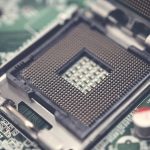A study recently accepted into The Planetary Science Journal has provided insights into the potential origins of life on Earth and its implications for extraterrestrial life on Saturn’s moon Titan. Findings indicate that organic hazes from Earth’s Hadean eon might have contained vital components for life, key to understanding the planet’s primordial conditions and assessing Titan’s ability to foster life.
Insights from Dr. Ben K. D. Pearce
In an interview with Universe Today, Dr. Ben K. D. Pearce, a Postdoctoral Fellow at Johns Hopkins University, shared the study’s aim to determine if the concentration of life’s building blocks in ancient ponds surpassed the crucial 100 micromolar threshold for chemical reactions leading to RNA formation. He drew parallels between the hazy early Earth and present-day Titan, emphasizing the significance of biomolecule-rich haze particles settling into ponds over four billion years ago.
Methodology and Revelations
The research team simulated early Earth’s atmospheric conditions, creating organic hazes in the lab and examining them for amino acids and nucleobases. They subjected samples to high temperatures to replicate conditions on an uninhabitable surface, complementing their experimental data with computer modeling. The study revealed that organic hazes could be the most abundant and enduring source of nucleobases in ponds on early Earth, suggesting a feasible route for life’s genesis.
Dr. Pearce noted that while the hazes could survive in methane-rich atmospheres, they would not endure on surfaces too hot for habitation. The work laid the groundwork for further research, and Dr. Pearce shared his plans for a new experimental setup at Purdue University. His future studies will aim to demonstrate the production of life’s first information molecules in conditions mirroring early Earth.
The implications of this research gain relevance with NASA’s forthcoming Dragonfly mission to Titan. The rotorcraft lander will search for signs of habitability on Titan, analyzing organic haze particles for life’s building blocks to potentially affirm the study’s laboratory findings.
The history of Titan’s exploration and its resemblance to early Earth prompts intriguing questions about the potential for life there. Dr. Pearce remains cautious but open-minded about finding life on Titan, acknowledging the challenges and the unpredictable nature of scientific discovery.
As scientists continue to probe the mysteries of life’s origins, the findings of this study offer a promising avenue for understanding not only Earth’s past but also the potential for life elsewhere in the cosmos.










